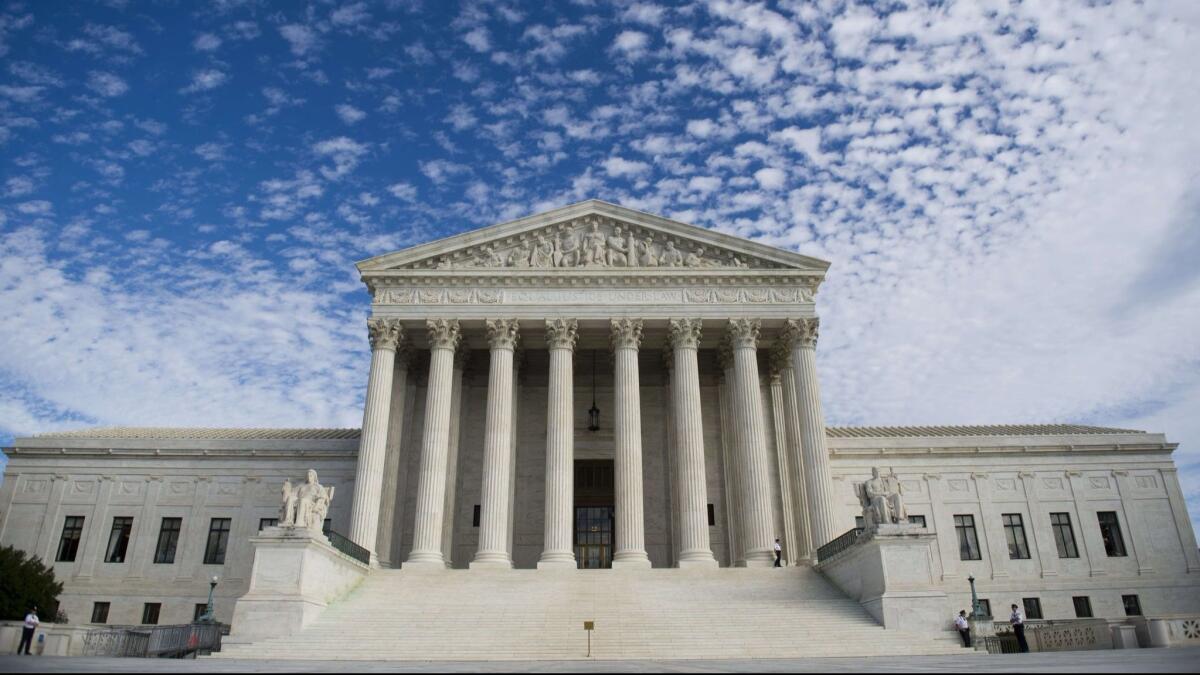Supreme Court to decide whether immigrants jailed for past crimes can be detained pending deportation

The Supreme Court agreed Monday to decide another case testing the Trump administration’s power to jail immigrants facing deportation.
The justices will review a class-action ruling from California that held that immigrants who served time in local and state jails may be released if they pose no danger to the public and are not likely to flee.
Administration lawyers appealed the ruling of the U.S. 9th Circuit Court of Appeals, arguing that federal law calls for “mandatory detention” for all noncitizens who face possible deportation because of a criminal record.
They said the 9th Circuit’s approach will lead to a “gap in custody” and “frustrate the [government’s] ability to remove deportable criminal aliens from the United States.”
The case, to be heard in the fall, sets up a clash between “sanctuary cities” that are reluctant to cooperate with federal immigration authorities and Trump’s lawyers who say the law calls for mandatory detention.
In deciding the case, the 9th Circuit said the detention law covers a “broad range of crimes,” from violent felonies to simple drug possession. And it applies to longtime, lawful residents who have lived and worked in the United States for decades.
The lead plaintiff in the challenge to this provision, Mony Preap, was born in a Cambodian refugee camp and has been a lawful permanent resident since 1981. He faced possible mandatory detention for two misdemeanor marijuana possession convictions in 2006.
The 9th Circuit said that because he had been released from jail, he was not subject to “mandatory detention” under federal law.
“We therefore hold that the mandatory detention provision … applies only to those criminal aliens who are detained promptly after their release from criminal custody, not to those detained long after,” wrote Judge Jacqueline Nguyen.
The Supreme Court kept the government’s appeal on hold while it decided a related case. In Jennings vs. Rodriguez, the court ruled last month that federal law did not give jailed immigrants a right to a bail hearing after six months in custody. However, the justices sent that case back to the 9th Circuit to rule on whether indefinite detention without a hearing violated the Constitution.
The new case, Nielsen vs. Preap, concerns a part of the same immigration law but focuses on a different group of lawful immigrants who had served jail time for a criminal offense.
Major questions before the Supreme Court this year »
Twitter: DavidGSavage
More to Read
Sign up for Essential California
The most important California stories and recommendations in your inbox every morning.
You may occasionally receive promotional content from the Los Angeles Times.










